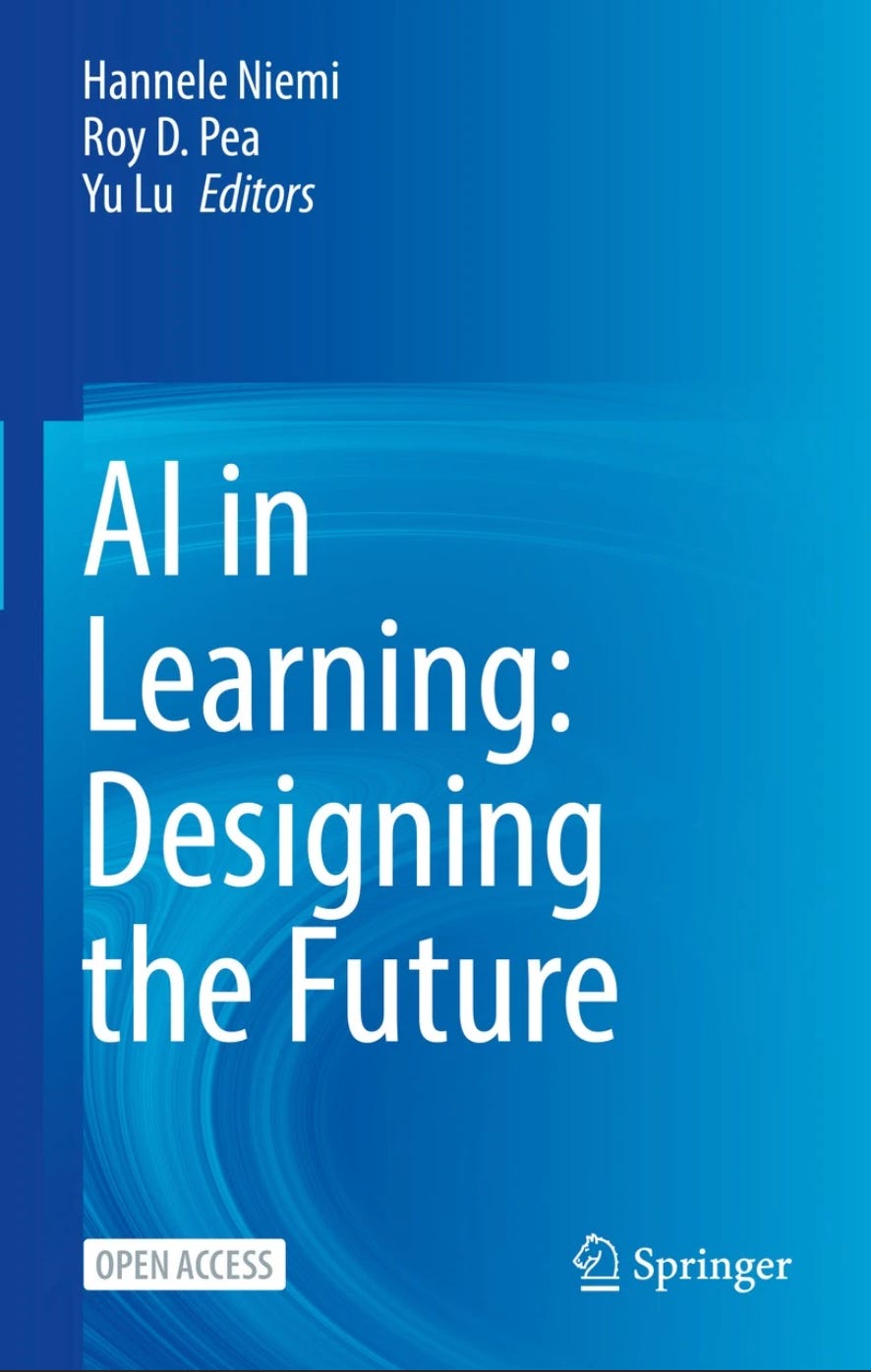Welcome to the eighty ninth edition of Small Talks. Every Friday, I highlight 6 areas of weekly joys and reflections in early childhood and the whole family. Small Talks leverages my experience at the intersection of education, philanthropy, and impact investing. Enjoy!
What I’m celebrating -
This week, I am filled with hope regarding human ingenuity and scientific progress, starting with the discovery of nuclear fusion and its potential mind-boggling implications for climate change.
Meanwhile, advances in AI (artificial intelligence) technology with the launch of ChatGPT have generated tremendous buzz, and are raising many questions in education: Should we continue teaching writing, and if so how? How will assessments change if children can now generate an excellent piece of writing or automated responses to test questions? Will we need coders in the future? Will Small Talks be generated by AI next?
The future is already here: AI applications are reaching early childhood classrooms and child care environments, families and even young children through phones, voice devices, software, and more.
Like any technology, AI could be a force for good, but the risks for greater disparities are substantial. This newsletter is dedicated to this topic.
Excellent report “Hacking early childhood” by the Royal Academy of Engineering with a global lens.
A scientific scoping review of AI and early childhood.
Two good landscaping overview documents on AI and education.
Some innovators doing inspiring work:
Soapbox Labs is using voice recognition technology for young children’s voices, and now partnering with EarlyBird to screen for dyslexia.
Ello supports young children and families with reading through an AI coach.
Amira Learning, Bamboo Learning and Tools of the Mind are all leveraging AI for language acquisition, reading and for peer-to-peer collaboration.
Koalluh promises to help children design full-length story books that match their reading level.
Storytimes takes this one step further and generates fiction stories with the child in the story, completely generated by AI image software and stylized by neural networks to elevate the narrative.
What I’m listening to -
This video from a teacher frames considerations for educators in 8 minutes. It is worth watching it.
What I’m reading -
This new academic book “Ai in Learning: Designing the Future,” a result of a global collaboration, focuses on the enormous opportunities to expand educational settings with AI for learning in and beyond the traditional classroom. This open access book also introduces ethical challenges related to learning and education, while connecting human learning and machine learning.
What I’m watching -
Two TED talks that precede the recent wave of innovations of generative AI:
How AI can save our humanity? by Kai-Fu Lee.
AI isn't as smart as you think -- but it could by Jeff Dean.
What I’m learning more deeply -
An AI that knows the world like children do is a series of writings by Alison Gopnik in 2017 with some predictions that have materialized.
Using edtech in the early years by Audrey Korin is a comprehensive review of technology, including AI.
On writing specifically, two good pieces: one arguing the college essay is dead, another making the case it is very much alive.
A good piece about the potential positive implications of AI in education.
A poem I’m pondering -
A chatGPT-generated poem about early childhood…quite good, isn’t it?
Feedback is a gift. Which part above is your favorite? What did I miss? What do you want more or less of? Other recommendations? Please kindly let me know. Thank to all of you who are sending me amazing suggestions.
If you enjoy this newsletter, please help spread the word by sharing with your friends, colleagues, and networks.
If you enjoy this newsletter, please help spread the word by sharing with your friends, colleagues, and networks.
Have a wonderful week. Please stay safe and care for each other.
Isabelle







Thank you for sharing our AI landscape overview!
This is phenomenal! Thank you for the resources!